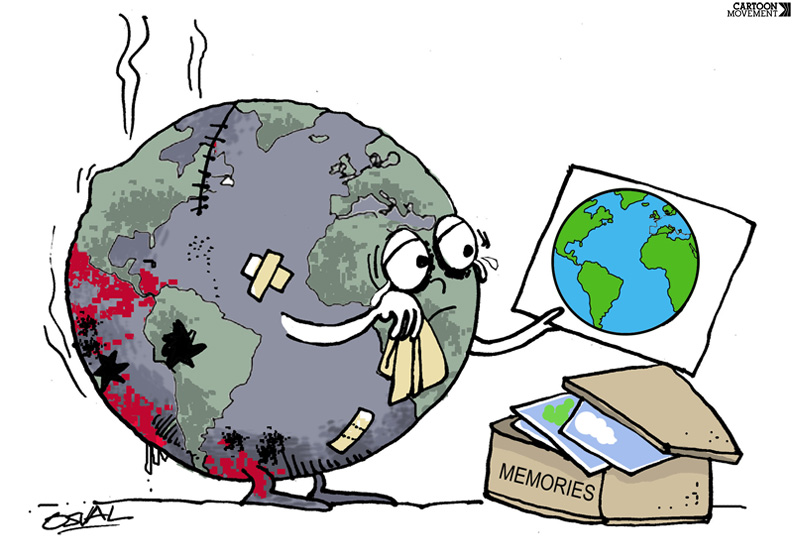
Franciscan priest Richard Rohr has some interesting things to say about the season we find ourselves in, with Earth Day following fast on the heels of Easter. It’s an opportunity for us to think about the relationship between faith, nature, and the environment. Of the Resurrection, Rohr writes:
To believe that Jesus was raised from the dead is not really a leap of faith. Resurrection and renewal are, in fact, the universal and observable patterns of everything. We might just as well use non-religious terms like springtime, regeneration, healing, forgiveness, life cycles, darkness and light. … The Risen Christ is not a one-time miracle but the revelation of a universal pattern that is hard to see in the short run.
This comes from a meditation that Rohr wrote marking Earth Day in 2019. Rohr continues:
Our job is to figure out not the how or the when of resurrection, but just the what! Leave the how and the when to science and to God. True Christianity and true science are both transformational worldviews that place growth and development at their centers. Both endeavors, each in its own way, cooperate with some Divine Plan; whether God is formally acknowledged may not be that important. As C. G. Jung inscribed over his doorway, Vocatus atque non vocatus, Deus aderit, “Invoked or not invoked, God is still present.”
God has worked anonymously since the very beginning—it has always been an inside and secret job.
The Spirit seems to work best underground. When aboveground, humans start fighting about it.
One of the questions we’re going to wrestle with in our conversation this evening is simply our take on Rohr’s proposition. Is Rohr right when he says that resurrection is part of a universal pattern, and thus belief in the Risen Christ does not require any leap of faith at all? Or was what happened on Easter an anomaly to what is in fact the normal pattern?
In drawing the connection between resurrection, springtime, life cycles, and so on, Rohr is also drawing us into thinking about our connection to nature and the Earth. Especially in this era in which many wrestle with anxiety and despair over climate change and the possibility of positive action. The Washington Post recently published a profile of climate scientist Rick Lindroth, who also happens to be an evangelical Christian. Lindroth argues that faith can be important toward combatting hopelessness over climate change:
Most Christians aren’t thinking about the future of the environment at Easter, but Lindroth is. On his desk sits a devotional book on climate change and Lent, the period of weeks leading up to Easter, that includes stories from creatures that are vanishing from the planet.
“Easter is very transcendent and very earthy,” he said. “It’s earthy in that Jesus came in human form and earthiness in death and all the nastiness that went with that and yet he defeated death and rose again. He promises full restoration for all of us and the Earth.”
As much as he believes in scientific research, he sees a need for more investment in shifting the public discussion away from denial and more toward love for nature. He wants to connect with people on another level that is less data-driven.
Conservative Christians have long debated humans’ role and responsibility in environmental activism. Since the 1800s, many American evangelicals adopted a view of the end times that the Earth will be ultimately destroyed. Many of these same evangelicals also believe they are just passing through Earth on the way to heaven, so they question whether humans should prioritize care for the environment. Somepoint to verses in Genesis that people are supposed to “rule” or “have dominion” over God’s creation to justify oil drilling and other practices.
But Lindroth and others interpret the same passage to mean that Christians should rule over creation as God rules, with benevolence, care and nurturing. Christians, he believes, are called to love what God loves and to care for what he cares for because creation’s purpose is to bring praise to God.
To motivate people to care for God’s creation, he said, people first need to have a “creation connection” that combines information with experience in nature. He does this by taking nature walks with friends, searching for salamanders when he visits his grandsons and taking canoe trips in the wilderness.
“I want people to be re-enchanted with the Earth, one nature connection at a time,” he said.
And so this is the other big topic that we will take on tonight. How can our faith equip us to reconnect us to the environment in a way that can give us hope rather than despair for the future of the climate? Here’s something else to consider: Are Rohr’s and Lindroth’s perspectives compatible with each other? How so?
We’ll talk all about it in our conversation this evening. Join us for the discussion beginning at 7pm at 313 Pizza Bar in downtown Lake Orion.